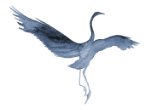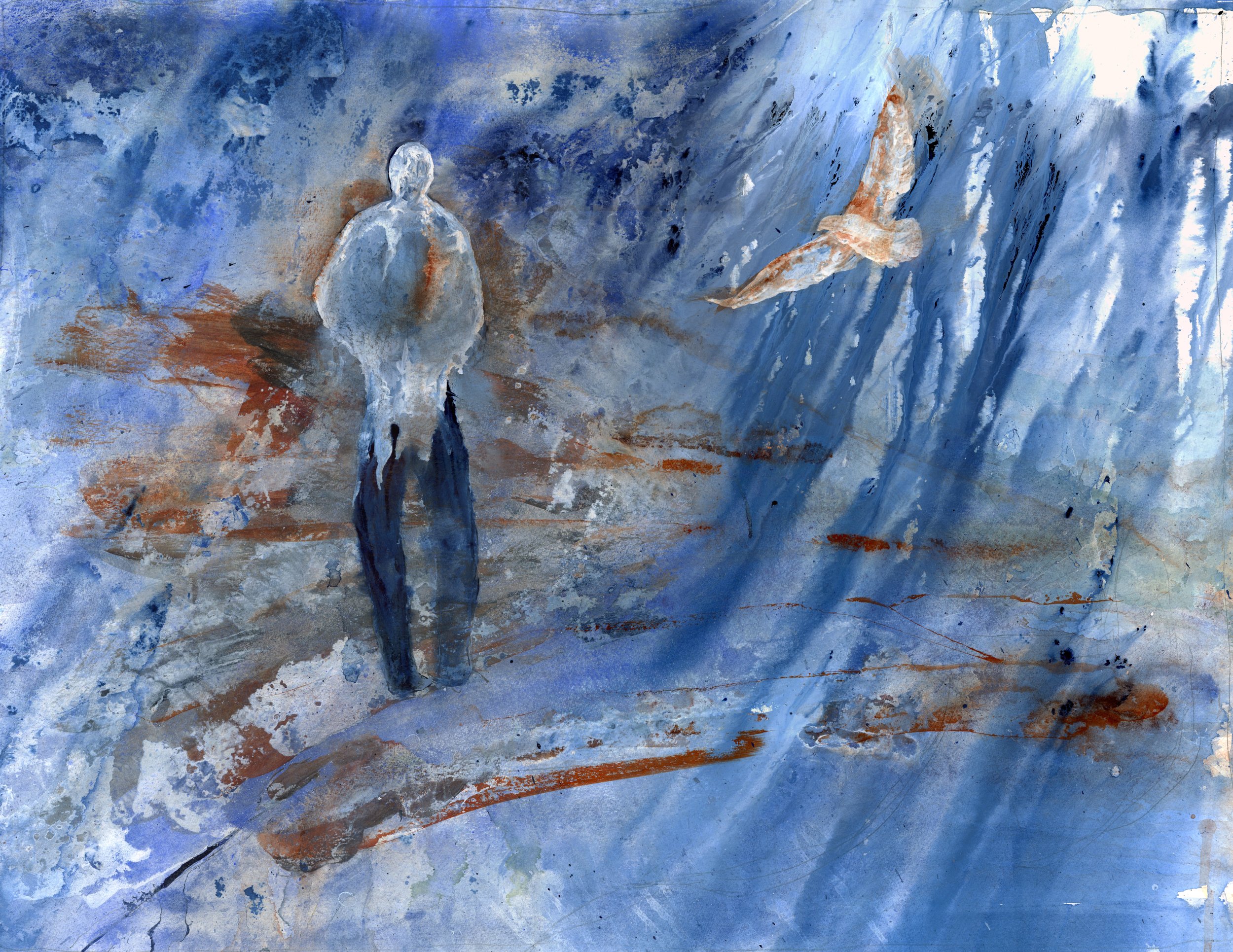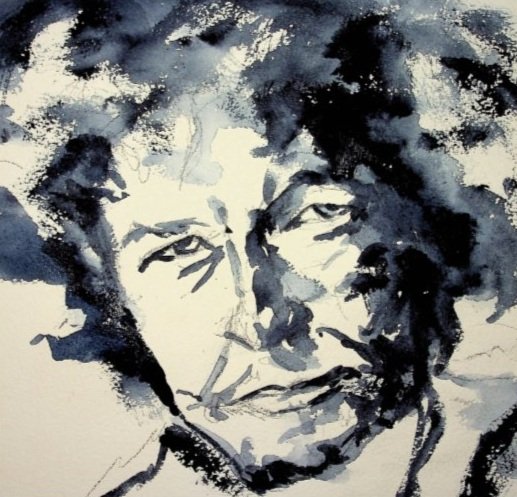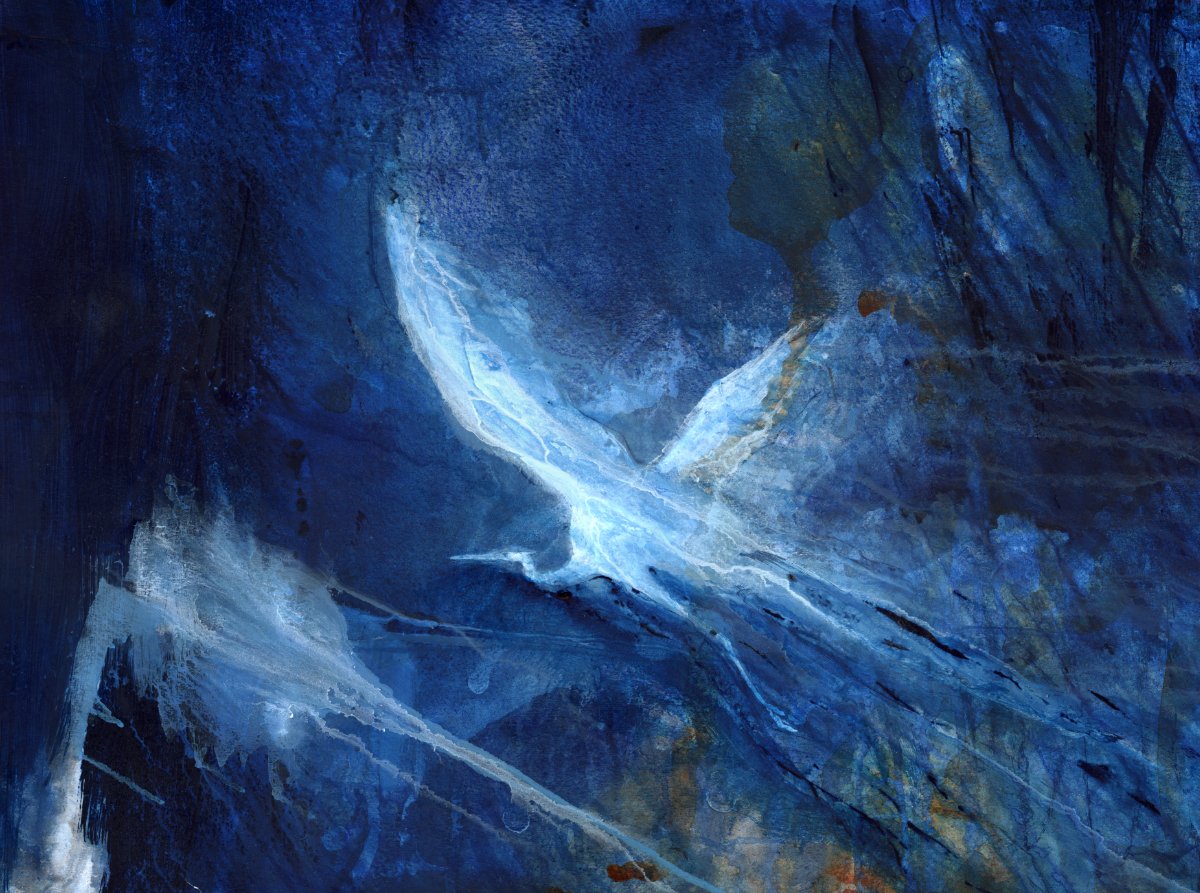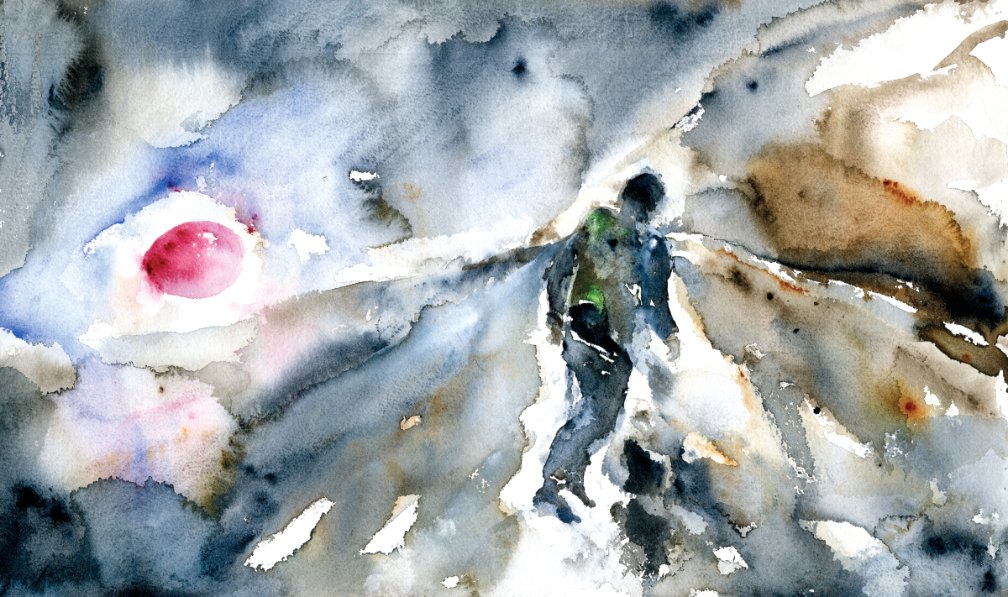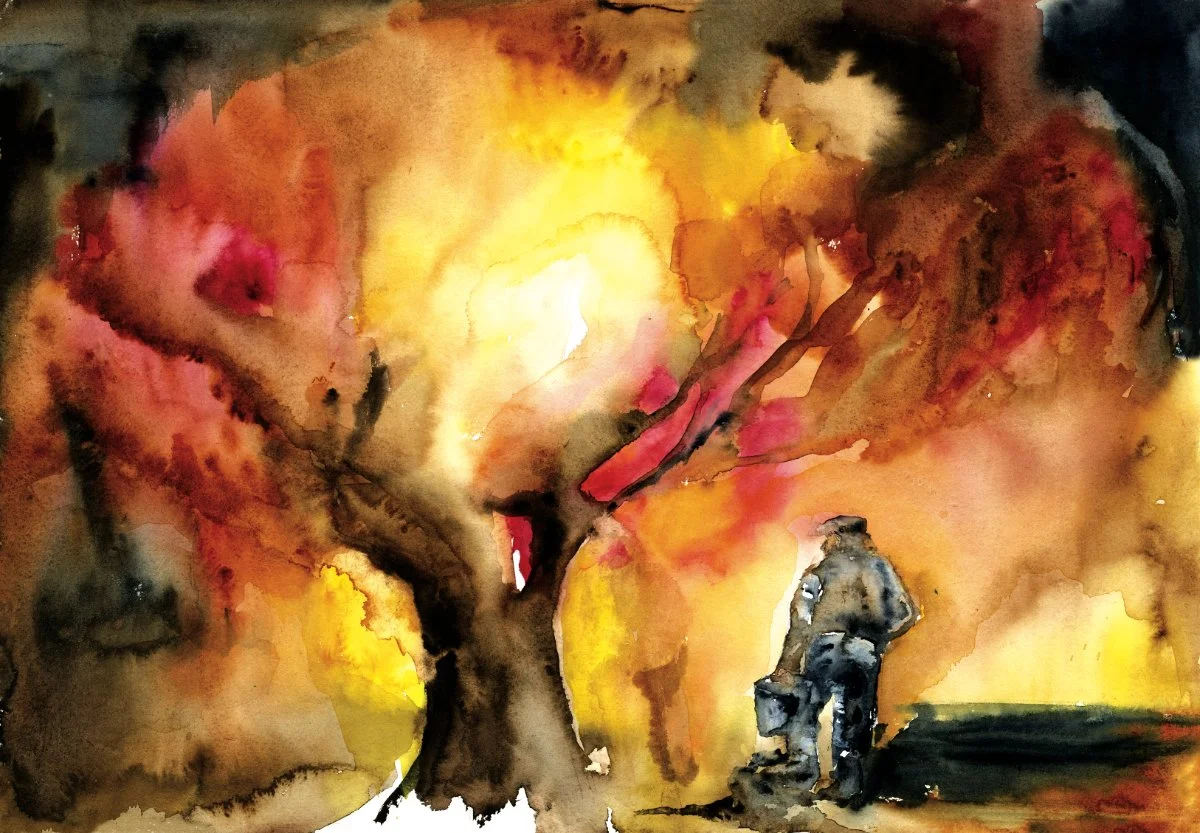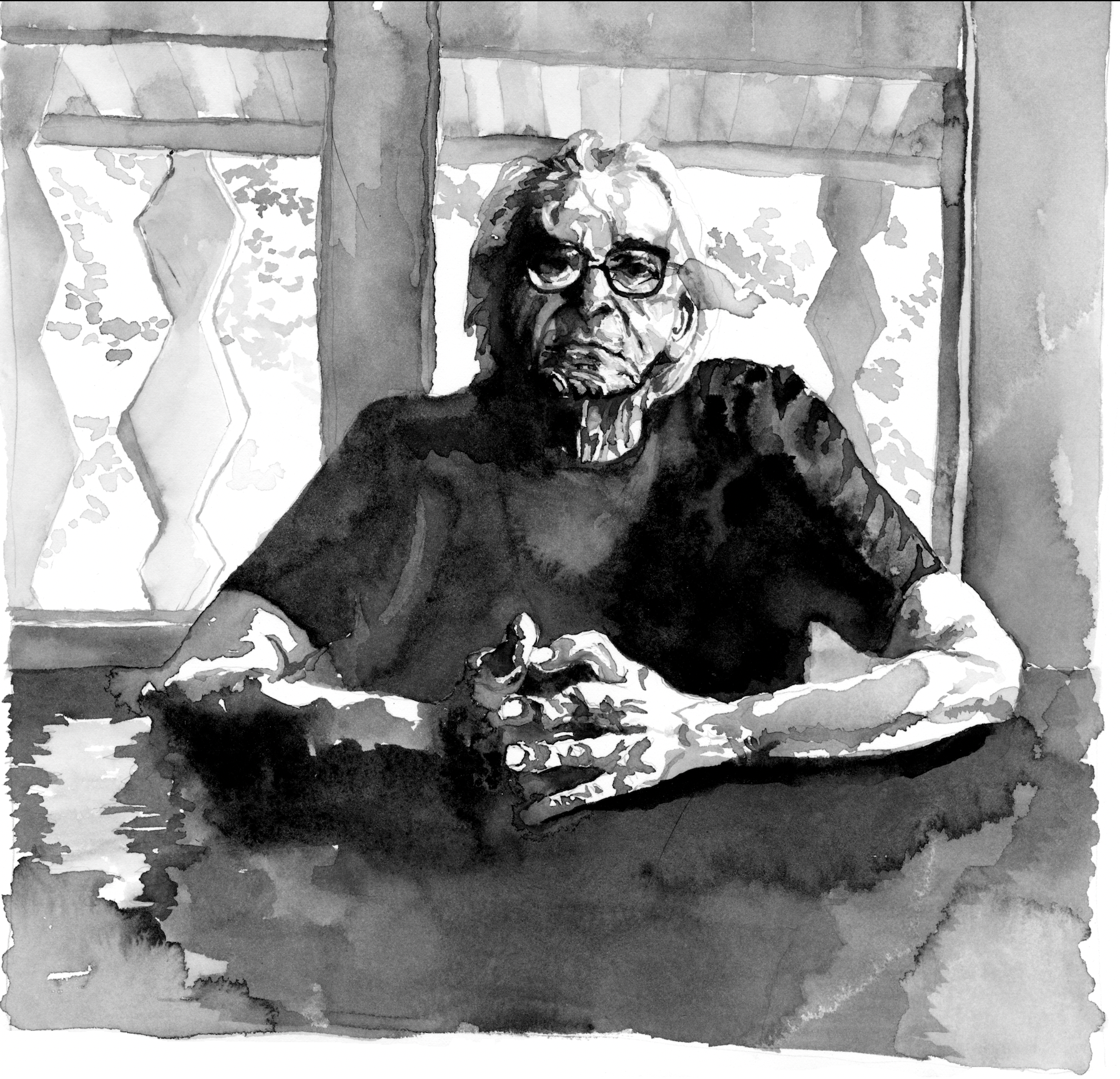
Interviews and Excerpts
I first interviewed Abbey Lincoln when she came to perform at the Flynn Theater in Burlington Vermont. Until her passing in 2010, I’d drop in and visit her, and interview her again when I visited New York City. She was about 76 at the time. Earlier in her life she had also been a famous sex siren of the silver screen. In our time together, our conversation ranged from black pride to music to spirituality. The strength of her personality and will was inspiring. Here are some excerpts:
The God of Love in the Form of a Muse
There is a garden spirit. There is a peaceful spirit. There is a spirit of know ledge and understanding. All music has a spirituality. The great old composers were always communicating with God and the human spirit. All great music is that. Mr. Beethoven. That is what music is. Praise of your God and of your spirit.
John Coltrane knew that jazz comes from a great muse. It's the spirit. He as possessed. If the muse holds you tight it is all about the muse. I am a medium. First you have to practice. I have been doing this since I was a little girl. The muse comes, and sometimes it holds me tight. And sometimes it stands off to the side and says, "I am not coming over there." So sometimes I have to struggle for it.
. . .
Read more excerpts from my Abbey Lincoln interviews here.
Music is your own experience, your thoughts, your wisdom. If you don't live it, it won't come out your horn.
- Charlie Parker
My goal is to live the truly religious life and express it in my music.
- John Coltrane
. . .
Read more of my favorite excerpts by and about John Coltrane visit here.
“You use the word beauty a lot. I would encourage the word pace. Rhythm. For me, the word rhythm has emerged above all other words. The word beauty is kind of ephemeral for me. I think more about peace. I long for peace. . .
“The people I have known on the water – the old timers I knew – eased with the winds. Do you think they live high stress? No. They lived simple. Their bodies even moved with it. They knew a rhythm and a tempo – different from this hard driving tempo we are into on the beltways. Wheels going to work. Drivin’.”
- Tom Wisner, Heron Dance Interview
. . .
Read more excerpts from my Tom Wisner interview here.
When I start a drawing I am scared. Drawing from life, which I do at least once a week, I have to prove I can still do it. I did a drawing yesterday on the beach. There are thirty figures in that drawing. I scribbled them down in a kind of ecstasy mixed with despair. I could never do it again. Drawing is a strange process, for even where it succeeds you never do justice to what you see. If you draw well today, you can’t assume that tomorrow you can continue on that level, you have to start all over again, from scratch. No guarantee of success, unless you are a hack who uses a routine.
- Frederick Franck, Heron Dance interview
. . .
You can find more excerpts from my interview of Frederick, and from his books, here.
The man who is really, thoroughly, and philosophically slothful is the only thoroughly happy man. It is the happy man who benefits the world. The conclusion is inescapable. - Christopher Morley from his essay “On Laziness”
. . .
For the rest of Morley’s essay on laziness, visit here.
“The creator's mindset. Going on the journey that transforms consciousness through trials and illuminations. That's the real adventure of life. It takes courage--dealing with life as a adventure.
The real objective of the journey is the experience of being really alive. The purpose is the transformation of the searcher. The journey brings the searcher to that place where he or she is in contact with the inner self--that quiet place of strength, of wisdom and peace…”
. . .
You can find my compilation of favorite Joseph Campbell quotes here.
We live in a truly marvelous world. A really, really interesting, diverse, marvelous place to have visited for a short time. Some get more out of it than others. Some of us try to get more out of it than others . . . I think you should make a conscientious effort to try. To be nosy. To look and to marvel. And not only to look but to see. Not only listen but hear on all different levels. It is indeed a marvelous world. Part of what makes it marvelous is our own kind. Part of what makes it incredibly marvelous to me are other than our own kind. I think it is important biologically to have them, but it's also important for my quality of life. I would not want to live in a world that had only people in it. I like snakes and frogs and creepy, crawly things and marvelous birds that can fly two hundred miles an hour and free my spirit . . .
- Len Soucy, Birdman of the Great Swamp and Cofounder of The Raptor Trust
. . .
Read more of our interview of Len Soucy visit here.
In his autobiography Chronicles One, Bob Dylan talks about stumbling upon the song “Pirate Jenny” from The Threepenny Opera by Bertolt Brecht and Kurt Weill. Within a few minutes, he felt that he “hadn’t slept or tasted food for about thirty hours. I was so into it. . . .This was a wild song. Big medicine in the lyrics. Heavy action spread out. Each phrase comes at you from a ten-foot drop, scuttles across the road and then another one comes like a punch on the chin. And then there’s always that ghost chorus about the black ship that steps in, fences it all off and locks it up tighter than a drum. It’s a nasty song sung by an evil fiend, and when she’s done singing, there’s not a word to say. It leaves you breathless.”
. . .
Read more about Bob Dylan’s creation process here.
I interviewed Andy Smyth, founder of Wilderness Way, in 2006. Andy offers a perspective on the usefulness of tuning into the underlying feelings we get of comfort or discomfort about our direction.
. . .
To read the more from this interview, visit here.
Frédéric Back was the first interview in the first issue of Heron Dance. His work has had a profound effect on the publication, who he is as a person has had a profound effect on me. Frédéric is in his late seventies. He has white hair and an eye patch – he lost an eye to an accident with a chemical used in film editing. He is both muscular and frail at the same time – the products perhaps of years of planting trees and working on the farm which is his second home. He talks slowly, gently and puts obvious thought into his words. The overall impression one is left with is of a deeply compassionate, principled and spiritual man. With some edits, and most of my questions removed, here is all the text we’ve preserved, which is eighty percent or more of our interviews.
. . .
To read the rest of this interview, visit here.
After writing his own folk music for a while, Bob Dylan, folk musician, became Bob Dylan, folk-rock musician. He took his music electric. Crowds booed him. They came to hear the Dylan they knew, the Dylan whose albums they owned. He dismissed them.
He’d stand up in front of the booing crowd and say, “I don’t believe you,” and then he’d play his new music.
. . .
To read the rest of this excerpt, visit here.
Tom Berry became a Roman Catholic monk, he says, because ever since childhood he has been a brooder and family life would have been difficult for him. He has taught university in America and China and is author of several books on Zen Buddhism and on a new, emerging view of the cosmos that encompasses both astrophysics and a reverence for creation.
. . .
To read the rest of this interview, visit here.
Cobalt Racer by Nathan Oliveira
I interviewed Nathan Oliveira in 2000, or thereabouts. Here are some excerpts.
As one works as an artist, you have to simply wait. If you wait long enough, and if you are serious enough about what you are doing, in a sense you will know what you are going to have to do. Like wings.
. . .
To read the rest of this interview, visit here.
Gruffie Clough, Heron Dance Interview
(Circa 1996)
Make it stand out
Travelling around the country, interviewing Outward Bound instructors, I had heard tales of Gruffie Clough. Even among that group of adventurous people, she stands out. Maybe that is because many of her adventures are related to a concern for other people. She has spent months, for instance, alone in remote Africa, with a kayak and a tent, distributing medical supplies to remote tribes. I guess I expected to meet some sort of superb athlete. She may be an athlete, but she wasn't what I expected to meet at all.
. . .
To read the rest of the interview, visit here.
Doug has had a profound impact on my life. We’ve been on a number of adventures together, had many ups and downs and the unfortunate fact is that I haven’t talked to him in ten years or more, ever since an ill-fated sea kayak trip in Baja. I miss him. He helped me find my courage when I needed it most — in the very early days of Heron Dance.
. . .
To read the rest of this interview, visit here.
If you’re going to try, go all the way. Otherwise, don’t even start. This could mean losing girlfriends, wives, relatives and maybe even your mind. It could mean not eating for three or four days. It could mean freezing on a park bench. It could mean jail. It could mean derision. It could mean mockery isolation. Isolation is the gift. All the others are a test of your endurance, of how much you really want to do it. And, you’ll do it, despite rejection and the worst odds. And it will be better than anything else you can imagine. If you’re going to try, go all the way. There is no other feeling like that. You will be alone with the gods, and the nights will flame with fire. You will ride life straight to perfect laughter. It’s the only good fight there is.”
. . .
To read more Charles Bukowski quotes, visit here.
“Our relationship with the primitives is direct. The struggle is in the spirit. That’s the genius of native sculpture . . . their ability to approach the myth that lies beyond the bear or fish to say something about existence. As an artist, I don’t recognize any distinction between us. I’m working in the same area as they did. I suppose you could call that inspiration.
I don’t want to encourage or discourage you. You like all of us must face reality – internal and external. In the end you’ll have to take a chance . . . Happily in sculpture the difficult learning process is also exciting, interesting and strengthening.”
- Leroy Setziol, at the age of 76, in a letter to a young art student
. . .
To see the rest of the interview, visit here.
They believed `next year' did not belong to them. It was wonderful to find a whole culture like this. They were my teachers par excellence. I grew up with them. I spent thirty-eight years with a people who don't plan. They have this wonderful gift of remaining detached from all of the ferocity of the world they found themselves in. . . They refuse to focus on the negative. They have nothing that is really permanent. They taught me to be ready for change when circumstances indicate. There is a force to which you must be open. Man proposes, God disposes. This way of life has been very good to me.
- from the Heron Dance interview of artist Gabriel Gély
For more from my interview of Gabriel:
http://www.herondance.org/gelyI asked Fritz about thoughts he might have on finding a calling and sticking with it.
“What makes our heart sing? Where do we find that lilt in our hearts? What makes us crotchety? What nourishes us? What makes us smile? What makes us thankful?
“Staying with it over the long haul has in fact brought me happiness and Vivian our happiness. And that means staying with it in times of unhappiness. Riding out the storms, the times of bewilderment, and hanging on and staying with it. Coming through those periods, there is a confirmation, and that inner confirmation brings the happiness that makes it feel all worthwhile.”
. . .
To read the rest of the interview, visit here.

